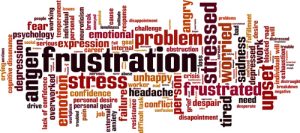Ten Consequences of Childhood Neglect

Like most empaths, I have been deeply disturbed by the separation of immigrant children from their families at the border. The impact of childhood neglect can be profound. I know this from Harlow’s research on baby monkeys, the studies of children in orphanages, by the work I’ve done with clients and my own history of neglect. I have been worried about the lifelong psychological damage this could do to these children, the impact it will have on their ability to feel safe in this world, their ability to trust and form healthy relationships, their growth, their ability to function when they get back to school and depending on how long they are separated, their survival.
Back in the 1950’s Harry Harlow performed experiments on baby monkeys where he took them from their mothers and other infants. These monkeys could no longer securely attach to other monkeys and their ability to socialize was severely disrupted. If the isolation lasted beyond 90 days, the effects were irreversible.
 More recently, Nathan Fox and colleagues studied childhood neglect by comparing young children (ages 6 months to 3 years) in Bucharest who were reared in a Romanian orphanage vs. those when were put in foster homes. In the Romanian orphanages, babies were left in cribs all day, except when fed, diapered or bathed on a set schedule. The neglected children in orphanages had a myriad of problems, ranging from cognitive deficits, to difficulty regulating emotions, social withdrawal, low self-esteem, to tics, tantrums, and stealing,
More recently, Nathan Fox and colleagues studied childhood neglect by comparing young children (ages 6 months to 3 years) in Bucharest who were reared in a Romanian orphanage vs. those when were put in foster homes. In the Romanian orphanages, babies were left in cribs all day, except when fed, diapered or bathed on a set schedule. The neglected children in orphanages had a myriad of problems, ranging from cognitive deficits, to difficulty regulating emotions, social withdrawal, low self-esteem, to tics, tantrums, and stealing,
As a healer, I’ve seen these problems with clients who’s parents were emotionally unavailable. As for my own healing journey, I’ve become increasingly aware that my lifelong struggles which sound a lot like the Romanian orphans (minus the tics and stealing) are likely due to many years of emotional neglect that I had growing up.
Given that I use the wisdom of the subconscious to get straight to the root causes of problems, I thought it would be of interest to share what I’ve learned about the consequences of childhood neglect from my experience as a healer.
Here are 10 major consequences that I have seen of early life neglect:
1.) Lack of faith that things will be OK
and That God/Universe will take care of you
 If no one responded to your cries or helped you deal with the fears or traumas you had as a child, or if your parents responded in way that was discomforting, than it can be much harder to deal with life’s blows. A crucial part of your parent’s job was to make you feel safe in this world. If they weren’t able to do that, then it becomes a lot harder to trust that things will work out for you when bad things happen.
If no one responded to your cries or helped you deal with the fears or traumas you had as a child, or if your parents responded in way that was discomforting, than it can be much harder to deal with life’s blows. A crucial part of your parent’s job was to make you feel safe in this world. If they weren’t able to do that, then it becomes a lot harder to trust that things will work out for you when bad things happen.
2.) Not believing you can get your needs met
If your bids for soothing, comfort, connection or for things you wanted were consistently ignored or turned down, wanting or hoping for anything can feel hopeless. If you have a parent that made you feel guilty for wanting things, it can feel unsafe to want anything, and so the part of you that dreams for a better future gets shut down. For most of my life, I felt like regardless of what I did to try to get my needs met, it wouldn’t help. I developed a lot of learned helplessness. As an Asian, I still had that drive to work hard, but I wasn’t in alignment with believing that my hard work would pay off. So I would work hard, but not effectively focus on what I needed to do to succeed.
3.) Not knowing how to get your needs met
The methods I used to get my needs met as a child didn’t work, and the methods that I saw my parents use, scolding and guilt, were not ones I cared to adopt. Asking for anything filled me with guilt and concern that I was a burden, and thus I’d ask in a way that demonstrated that I didn’t believe that I was worthy of their time.
4.) Insecure attachment styles
If neglected as a child, it can be hard to trust other people. Healthy relationships can be scary and hard to trust. People capable of healthy relationships might seem boring. If you’ve felt like you weren’t worthy of love, support and care, then you will be attracted to people who make you feel that way. Or you might run away from people who love you.
5.) Belief that no one cares about you
 Years of childhood neglect, especially at that critical period of development can lead you to believe that no one cares about you. With a belief that no one cares, it’s harder to engage in pro-social behavior. It becomes harder to trust people’s good intentions. It becomes harder to attract people that care, because at a deeper level you don’t feel worthy of being cared for. So you attract people who don’t care, because that is what you subconsciously believe you are worthy of.
Years of childhood neglect, especially at that critical period of development can lead you to believe that no one cares about you. With a belief that no one cares, it’s harder to engage in pro-social behavior. It becomes harder to trust people’s good intentions. It becomes harder to attract people that care, because at a deeper level you don’t feel worthy of being cared for. So you attract people who don’t care, because that is what you subconsciously believe you are worthy of.
6.) Chronic stress and anxiety
If you’ve experienced long periods of childhood neglect, it is tough to trust that you’ll be protected or OK. Unfortunately we attract what we are used to, and so we are more likely to end up in situations that we had as a kid. In academia, I struggled to get the support I needed to do my job, and eventually quit because I couldn’t get my needs met. I became an entrepreuner because I couldn’t trust others to be there for me, and so I felt like I had to do things on my own. This distrust also made it tough for my to find the support I needed to succeed. The combination of feeling like I had to do everything myself without a good support system caused a lot of stress and anxiety. I didn’t know how to run a business, or sell what I had to offer, and thanks also to the rapid rise in the cost of living, I regularly worried about how I was going to pay my bills. I felt like I had to do everything on my own, and that was very stressful!
7. Fear of exploration
 Mary Ainsworth ran a series of experiments with 1-2 yr olds to see how they would respond when their parents left the room and returned. Children who felt safe around their mothers were able to explore their environment, but would use their mother as a safe based to return to. Children who were not comforted by their mothers were afraid to explore. I have always been interested in other cultures, and love the idea of adventure travel and trying new things. But I find it is much harder to do these things when I don’t have a stable relationship I can count on.
Mary Ainsworth ran a series of experiments with 1-2 yr olds to see how they would respond when their parents left the room and returned. Children who felt safe around their mothers were able to explore their environment, but would use their mother as a safe based to return to. Children who were not comforted by their mothers were afraid to explore. I have always been interested in other cultures, and love the idea of adventure travel and trying new things. But I find it is much harder to do these things when I don’t have a stable relationship I can count on.
8. Depression
We need people to survive. Early life abandonment and childhood neglect decreases your ability to trust others and get along. This can lead to an increased likelihood of loneliness, which leads to depression. Loneliness can have profound effects on our emotional and physical health. Read more about the dangers of loneliness here.
9. Self soothing behaviors/addictions
People who can’t trust or count on others are much more likely to seek out other ways to self soothe via addictions or obsessive compulsive behaviors. When they have suffered from childhood emotional neglect, they haven’t been taught to adapt to difficult experiences, and thus they engage in behaviors that dull their anxiety or ability to cope.
10. Memory and other cognitive problems
Researchers placed 21 day old mice in isolation for 2 weeks before returning them to their colonies. They looked at their brains in adolescence, and found that their myelin, which is the part that insulates the neuronal connections, was unusually thin, especially in the prefrontal cortex. Behaviorally, these mice were antisocial and striking deficits in memory. Similar patterns have been seen by children raised in orphanages. In addition the children in the Bucharest study had high levels of developmental problems, cognitive deficits, reduced electrical activities in their brains, and significant reductions in brain sizes. Learn more about How Childhood Neglect Stunts the Brain Here. Many people who suffer from the other symptoms named above have learning disabilities, or other cognitive challenges.

Often we are not aware that we were neglected as children. It can be too painful to admit to ourselves. Sometimes we can have loving relationships with our parents, and not realize that they might have been going through a stressful time, and couldn’t be there for us when we needed them. It is far more common than we realize, although it can occur at different times and to different degrees. Learn more about the signs of childhood emotional neglect here.
If you’ve had a lot of neglect in your childhood, or if you resonate with the experiences mentioned above, seek help to overcome the challenges you face. Much of the consequences of neglect can be significantly improved using effective methods. I know this because of my own personal journey of recovery. If you’d like to learn more about what is possible for you, learn more about the Body Code here and contact me here to schedule a complimentary 20 min call.




Tina, thus really resonated for me. Thank you so much for writing about this topic!
You are most welcome Jean!